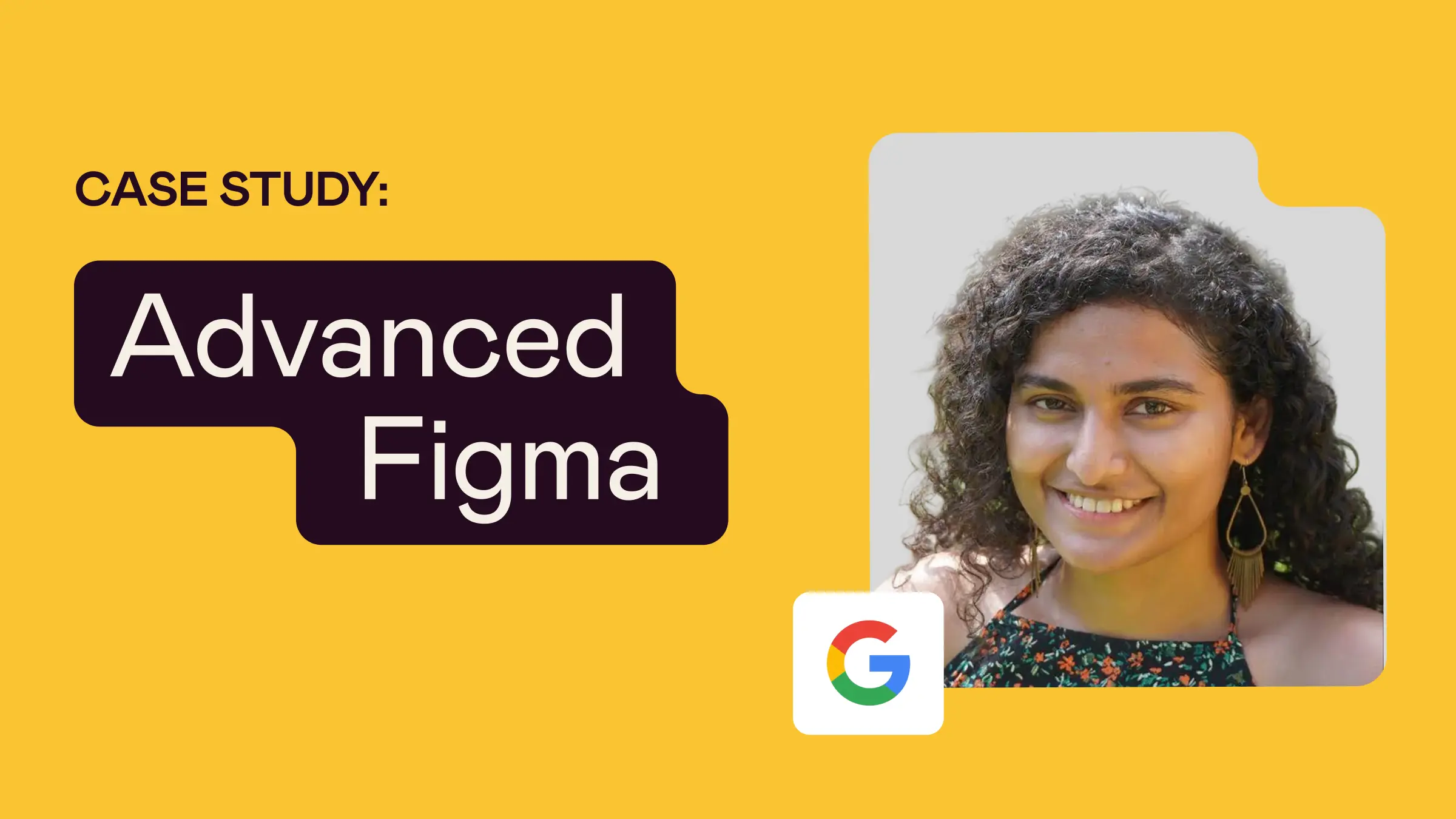When Marko Vuletič was a teenager in Slovenia, he made a promise to himself—he would never be average. This decision made over a decade ago has shaped and transformed how Marko has approached his career, from dropping out of college to deciding to specialize as a designer.
Marko first enrolled in Designlab’s UX Research & Strategy course, and then UX Academy with Designlab. Otherwise, he’s completely self-taught. “I’ve always pursued things that I felt passionate about so it made sense for me to drop out of college and study on my own, since I didn’t want to spend any more time on things that didn’t matter to me.”
Marko believes that traditional school systems will become obsolete in a few decades. When he found Designlab, he was already quite skilled at individual design and he knew about user experience, but he knew he had room to improve. “What I was lacking were the user experience processes and techniques. I knew I could learn this on my own but it would take me more time to master it.
The first course I enrolled in was UX Research & Strategy. One year later when Designlab introduced UX Academy, I enrolled into that one as well since it provided the whole process, not just the research and strategy aspect of user experience.”
In this interview, Marko shares his experiences on integrating his client work into his Designlab coursework, and talks about his useful side project.
What were your expectations for the Designlab course?
I’m the type of person that does extensive research before committing to something. To be honest, I had high expectations for the course because it was promised to me that I’d learn 1-on-1 from top experts in the industry. After going through the curriculum and testimonials, I was immediately sold on the outcome.
What were your previous experiences with online courses? How was Designlab different?
Prior to Designlab, I had some experiences with online courses, but they can’t compare to Designlab. The other courses I’ve taken were just pure knowledge based. This means that you’re given the material, then you’re on your own. It was up to you to do whatever you like with the material provided.
What I really liked about the Designlab course were the assignments and the weekly mentor calls. I’m a strong advocate that the best way to learn is by doing. Assignments not only made sure that I retained the knowledge I learned from reading material, but also that I actually went through the user experience processes. My mentor gave me assignments within the course platform. Probably one of the most valuable things was that I could ask my mentor for personalized feedback, clarification, and additional resources when needed. That’s not to mention the accountability a mentor provided. Because I knew I’d have to report to the mentor weekly, I was more motivated to go through the course and make the best of my time.
UX Academy introduced a more community-based approach where all the students and mentors were invited into a Slack community where everybody could help each other.
What was your favorite assignment and why?
Although I’m a designer, I was always intrigued by science and psychology. Research, analyzing data, and gaining insights is an area where all these things overlap. That’s why my favorite assignment was creating a research plan. Up to that point I had just read about it, but I’d never actually done it myself. I thought I didn’t have enough knowledge to do it on my own, so I was hesitant to use it on a client project. After going through the assignment and getting constructive feedback from my mentor, I became more confident to do so.
What surprised you the most about the course?
I was positively surprised how an online course doesn’t have to be an isolated place where you get the content, only to be left alone in the end. Accountability is extremely important and there is no better way to achieve it than by creating a community around the course—where everybody can either help and encourage each other, or just talk about the issues they’re having at the moment.
Can you talk about how you worked with your mentor? How did this make the course different?
In the UX Research & Strategy course I had weekly calls with my mentor, Patrick. Once I completed assignments, he provided feedback via comments through the course platform. In weekly calls, we first went through the assignments I’d completed since the last call. We talked about the processes and the struggles I might be having while doing a certain assignment. We also went through things that were good with my work, and things that could be improved. We ended each call with a quick goal planning session on what needed to be accomplished by the next call.
What I really liked about Patrick was that he always pushed me to grow by asking thought-provoking questions, which helped me to think outside of the box. Having a mentor made it easier to go through the course and understand the material. Sometimes you have to hear things from a different perspective before it makes sense—so it’s great to have somebody knowledgeable that can clarify things to you.
How have you integrated what you learned through the course into your career or personal interests? Any success stories?
At the time I was going through the UX Academy course, I was also working on a long-term client project. We had to validate the things we were building, so I scheduled customer interviews. The funny story is that the same week I had customer interviews, I was going through the research module which covered an introduction to research methods. With some help from Christoph, my UX Academy mentor, I was able to apply things that I’d learned in the course on a real project in a matter of days. I’m happy to say we’ve gained a lot of useful insights that validated our product and helped us improve it.

![]()
What is your favorite design book?
It’s hard for me to pick just one because there are so many good ones out there. My favorite one doesn’t particularly fall into the design category but it’s essential for everybody that’s designing products for end users. It’s called Badass: Making Users Awesome by Kathy Sierra. She explains why some products are more successful than others, and why it’s important to make users a better version of themselves by using your product/service.
What is your favorite design tool?
That’s an easy question—Sketch. Do you know the feeling when you try something new that improves your quality of life so much that you can’t imagine living the old way anymore? Well, that’s how I felt when I tried Sketch for the first time. I remember I couldn’t wait to finish the client project I was working on at the time to fully switch from Photoshop to Sketch.
In fact, I’m so passionate about this tool that I’ve created a platform called Sketch Tricks where I teach others how to use Sketch to design web and mobile user interfaces more effectively. I write about different workflows, valuable tricks, and useful plugins that make Sketch more powerful.
Do you have any advice for other students thinking about taking a Designlab course?
There is no better way to learn than with the help of mentors who are the top experts in the industry. They’ll keep you accountable, push you to go out of your comfort zone, and make sure you’ll succeed at the end. Not to mention the connections you’ll gain along the way! Studying material is insightful and valuable and if you think that’s not enough, you can always get additional resources and book recommendations from mentors and fellow students to dive deeper into a particular subject.
View more of Marko's work here
Thanks for sharing your experience with Designlab, Marko! If you’re interested in becoming a Designlab student, check out the enrollment deadlines for our upcoming courses.



.svg)














